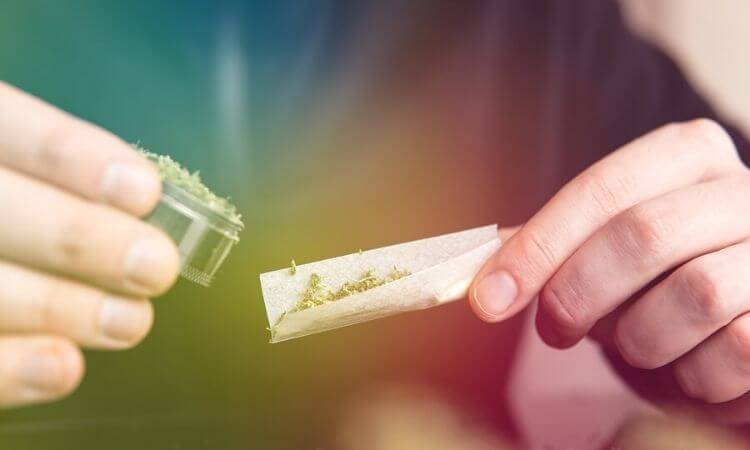
Despite the belief of some that marijuana doesn’t cause physical dependence, many people who go through detox report experiencing unpleasant symptoms. Although these symptoms aren’t particularly severe, they may compel some people to continue using and abandon the attempt to quit.
Marijuana Withdrawal
Symptoms of marijuana withdrawal syndrome may include the following:
- Headaches
- Shakiness
- Fever and chills
- Low appetite and weight loss
- Extreme sweating
- Restlessness
- Stomach pain
- Difficulty sleeping
- Tiredness during the day
Some people primarily experience negative emotional states, such as irritability, anger, anxiety, or depression.
How long do symptoms last?
The duration and intensity of symptoms from marijuana will vary between individuals. Those with a more severe addiction will experience worse withdrawal symptoms. The physical effect should last only a few days, but emotional symptoms can persist for months.
Unlike many other drugs, THC (the active chemical in marijuana) is stored in the fat cells. Therefore, it takes longer to be fully eliminated from the body than most other commonly abused substances, whose active ingredients are usually water-soluble. This means that some parts of the body will still retain THC even after a couple of months, rather than just a few days or weeks.
What are the most common emotional symptoms?
Insomnia is the most common symptom of marijuana withdrawal. This can result in the inability to sleep for a few nights, or up to a few months of transient sleeplessness.
The second most common negative symptom is depression, followed by vivid dreams or nightmares. Marijuana use tends to impede the brain’s dreaming mechanism, and therefore, withdrawal can induce vivid, highly emotional dreams or nightmares. These may begin after a few days and typically last a month before they subside.
Dreams about using marijuana are very common. They may last for years and are considered a normal part of recovery. Another common symptom of withdrawal is irritability and anger. These feelings can range from a slow-burning rage to persistent agitation, or even to sudden, unpredictable outbursts of anger.
Emotional jags are also common, with emotions vacillating between anger, depression, and euphoria. Occasionally people experience fear or anxiety and decreased or increased sex drive. Most of these symptoms will subside to normal levels by three months.
A lack of concentration for the first week to month may also occur, and this sometimes affects a person’s ability to learn for a brief time.

What are the most common physical symptoms?
The most frequently reported physical symptom is headaches. For those who experience them, they can last for a few weeks up to a couple of months. The first few days they may be very intense.
The second most common physical symptom is night sweats, which can last from a few nights to a month or so. Sweating is one of the body’s natural methods of eliminating toxins.
The body may also cleanse itself by generating a phlegm-filled cough. This symptom can last for a few weeks to six months or longer.
Many in early recovery also report eating difficulties for days to weeks during withdrawal. These may include loss of appetite, digestion issues, nausea, and cramps. Most of these problems should subside after about one month.
Shaking, tremors and dizziness are also relatively common. There have been cases of recovering addicts experiencing more severe detox symptoms, but this is rare.
How can I reduce discomfort?
The best way to improve comfort and prevent relapse is to undergo withdrawal in a medical environment. However, if a person decides to do this at home, these tips that may help the process:
1. Drink plenty of water and clear liquids.
2. Cranberry juice has been used or years by recovery houses to help detox and the body.
3. Excessive sweating can drain the body of potassium, a vital mineral. For this reason, it may be beneficial to eat foods high in potassium such as bananas, melons, citrus fruits, green leafy vegetables, and tomatoes.
4. Eliminate fat from the diet until digestion has improved.
5. Significantly reduce or eliminate caffeine until sleeping is more regular, and any shakiness has subsided.
6. Employ methods to help treat insomnia. Such methods may include using over-the-counter sleep aids, melatonin, or drinking warm milk or chamomile tea.
7. Exercise may be very beneficial, as it can reduce depression and other unpleasant emotions, and it helps the body accelerate the healing process. Also, it may promote improved sleep.
Treating Marijuana Withdrawal and Addiction
Although marijuana dependence may not prove to be as serious as that of other substances, such as heroin or meth, it can result in adverse consequences. Those who wish to recover are encouraged to enroll in a treatment program that can help with detox and address the underlying causes of abuse or addiction.
Midwood Addiction Treatment offers integrated programs that include services vital to recovery, including psychotherapy, counseling, group support, aftercare planning, and more.
If you are struggling with drug abuse, contact us today to discuss treatment options. We can help you end the cycle of addiction for life!